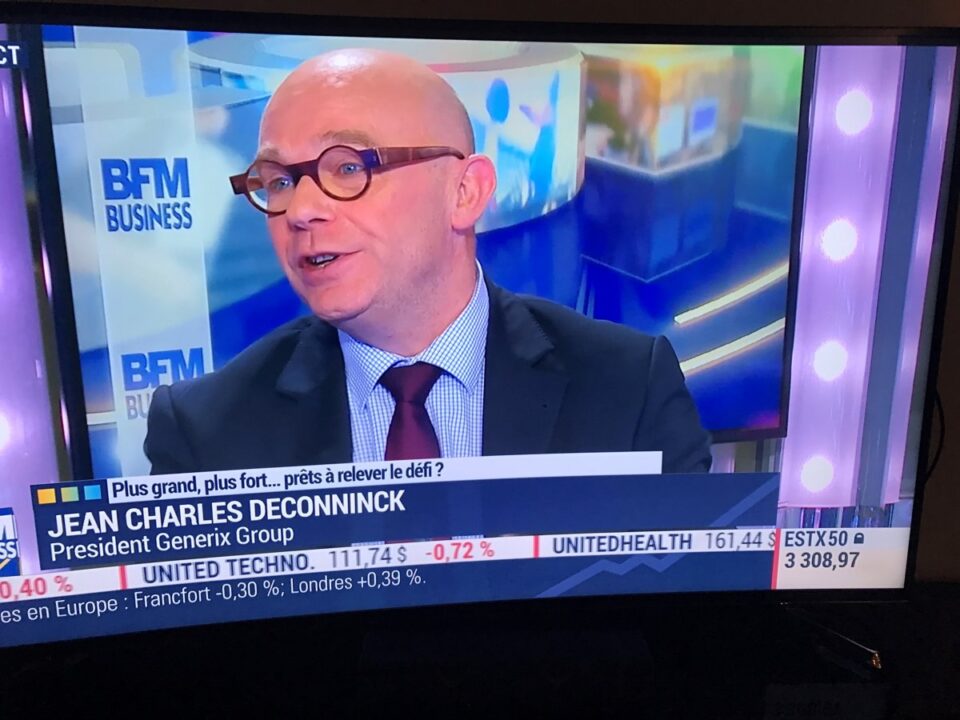
How Vendor Managed Inventory (VMI) Strengthens Supply Chain Resilience and Collaboration
To optimize inventory management, retailers and suppliers are increasingly turning to Vendor Managed Inventory (VMI) tools that transfer the responsibility…
Bona: Building Operational Excellence with Solochain WMS Read the use case

In Germany, there is an awareness of the connection between the structure of businesses and the competitiveness of the national economy, and mid-cap businesses have been placed at the heart of the German economic policy. These businesses are grouped together under the generic term of “Mittelstand” and collectively represent 45% of the country’s GDP, 70% of employment, and also benefit from flexible fiscal policies. Mid-cap businesses owned in majority by the founding family also benefit from specific inheritance laws. Is this the reason why there is a large volume of mid-cap businesses in Germany (12,000)? Or is it the opposite? It’s hard to say, but without a doubt, the fiscal environment surrounding mid-cap businesses in Germany encourages their growth.
France has started to change its policies towards supporting mid-cap businesses, possibly as a reaction to the success of the German example. Recently, the Banque Publique d’Investissement created the ETI 2020 funding program to help accelerate the development of mid-cap businesses in France. While this is a great initiative, I can’t help but shake my head at the paradox that this evokes! On the one side, we have the monetary support to help in our development, and on the other, we see a chronic fiscal instability that has been weakening us for over a decade. In short, there have been 40 changes in tax laws for companies between 2003 and 2008, and France has seen 4 different tax regimes since 2012! How are mid-cap businesses and SMEs meant to thrive in this kind of environment?
I am not advising to literally use the Mittelstand example as our own, as it rests on a different economic environment that has its own limits, especially when it comes to globalization and shared information. So what can we do?
First of all, we can’t indulge in self-pity. We need to keep the vision of our strengths in mind. Currently, there are 5,000 of us in a positive strategic position, with enormous agility and innovative management groups. So if the national fiscal environment isn’t providing us with competitive advantages, then we need to stimulate our own growth by deepening our strategic thinking on fundamental matters.
Let’s take digitization for example. We are currently in competition with British, American, and German companies that are more agile than we are, and in order to counter them in this domain, there needs to be a lot more of us moving into the digital world. By nature, we are agile and flexible, so let’s take this opportunity that innovation is offering us!
We don’t have to depend on public authorities if we take actions into our own hands. And once we are stronger, we will have the power to demand more from them. If a link between the structural size of businesses and the competitiveness of the national economy does exist, then mid-cap businesses are currently suffering a deficit. We can contribute towards plugging this hole by giving ourselves ambitious objectives, showing unshakable will, and by displaying sustained efforts, all of which will serve toward inspiring SMEs. This is clearly a question of economic patriotism!

To optimize inventory management, retailers and suppliers are increasingly turning to Vendor Managed Inventory (VMI) tools that transfer the responsibility…

In an ever-evolving logistics environment, agile and precise warehouse resource management is essential to remain competitive. With increasing volumes driven…

France’s electronic invoicing reform relies on a Y-architecture, where Partner Dematerialization Providers (PDPs) play a central role in issuing and…

Work with our team to build your ideal supply chain software stack and tailor it to your unique business needs.